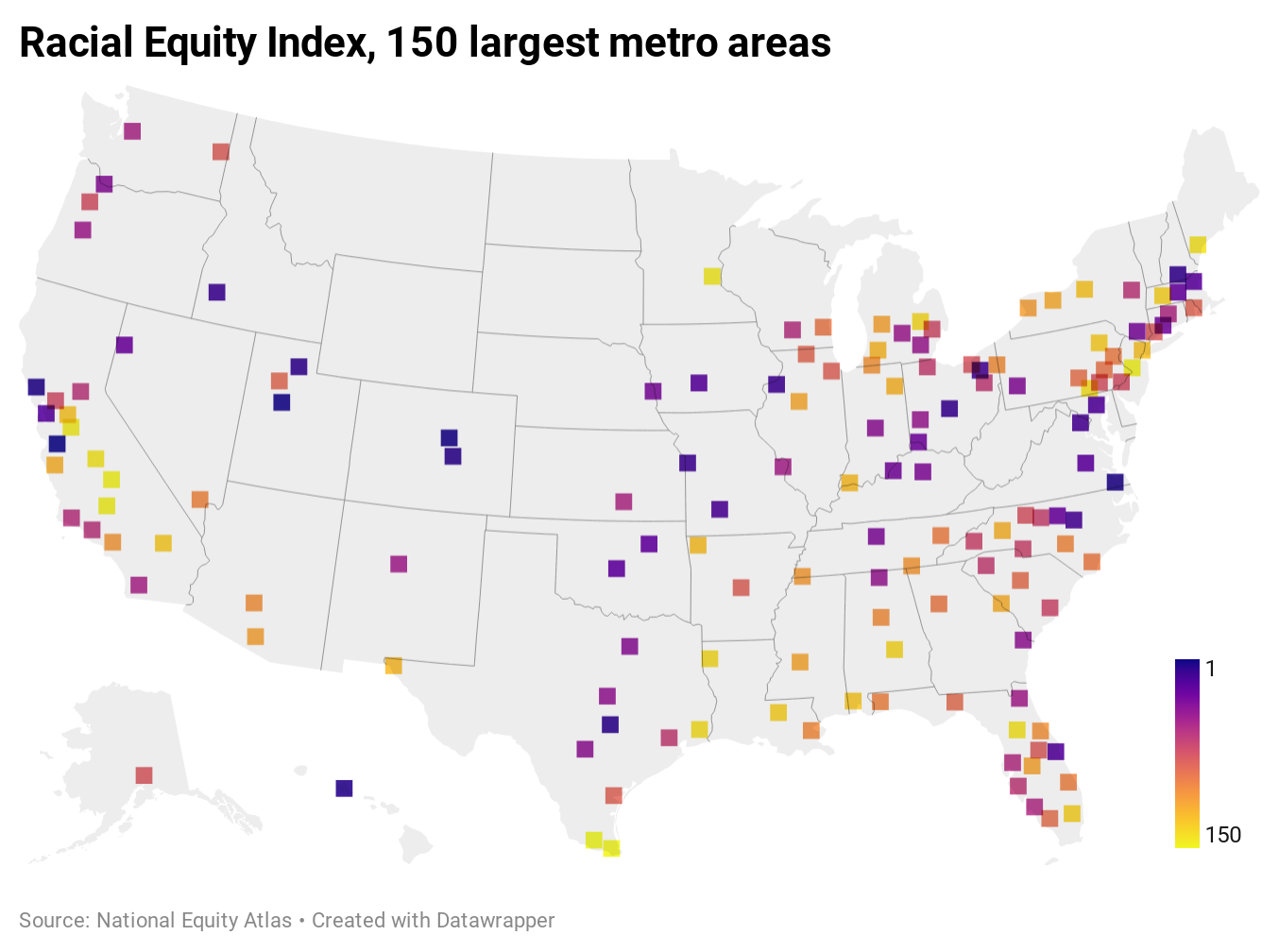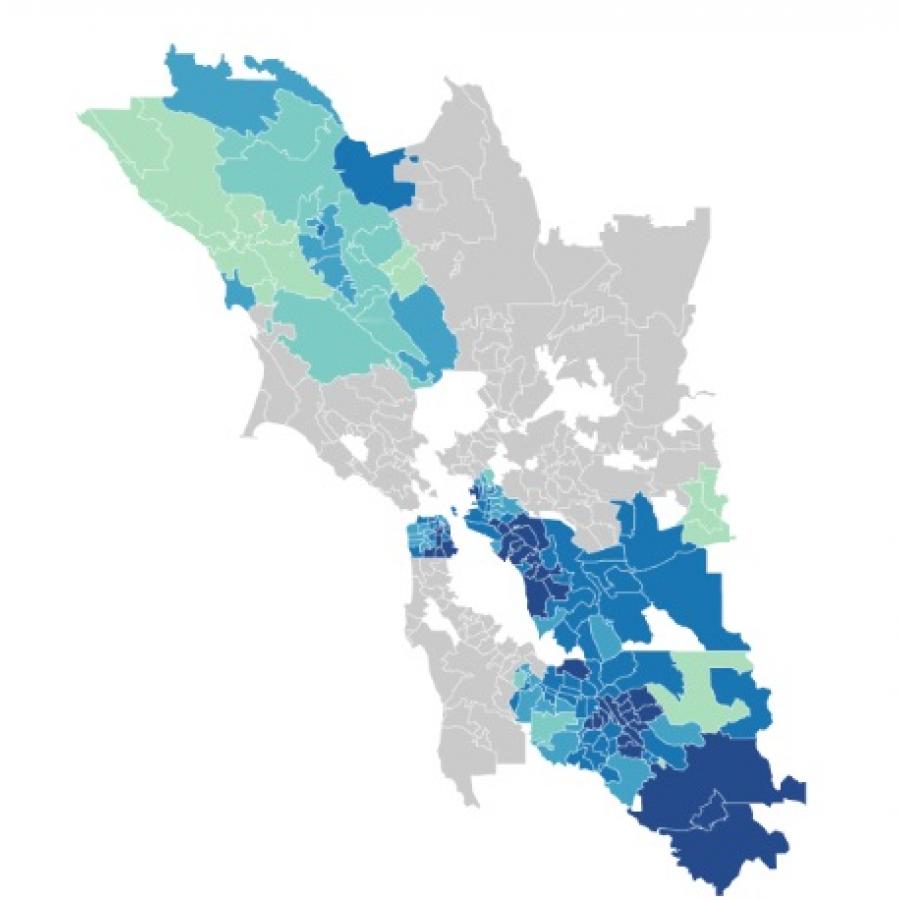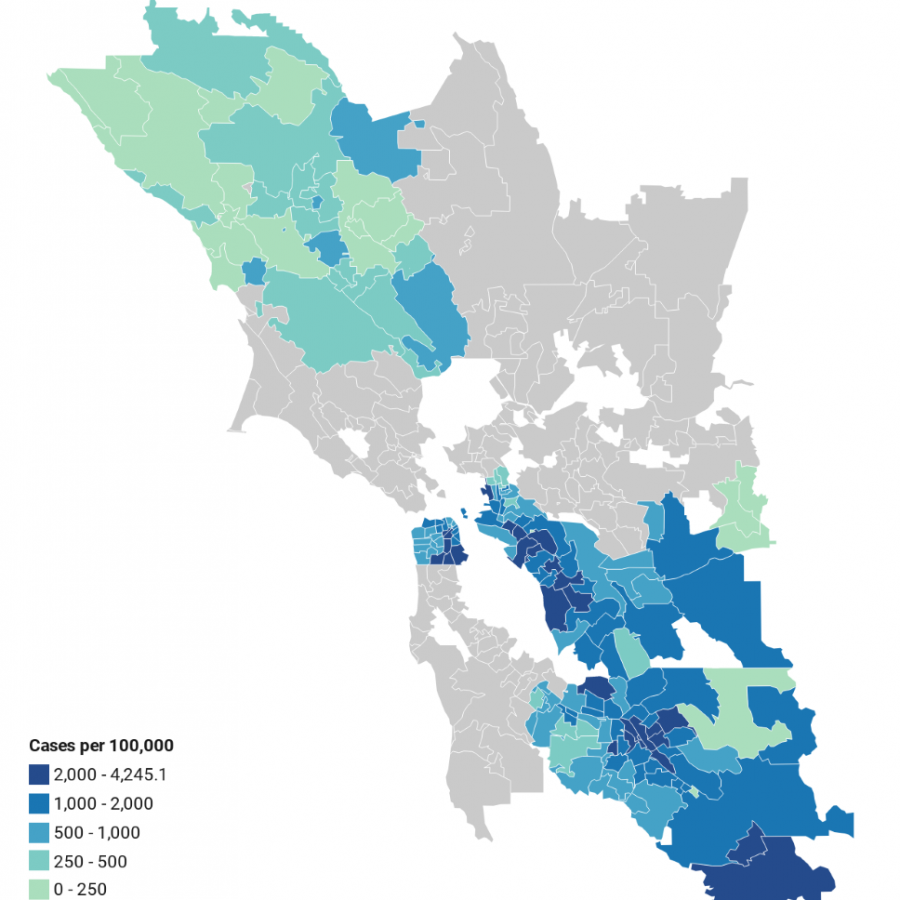How Our Data Helped Advance the Equity Movement in 2020
Dear Atlas Users,
Happy Holidays from the National Equity Atlas Team! This has been a year of tremendous economic and social turmoil. From the unfathomable human and economic costs of the Covid-19 pandemic to the murder of George Floyd and the national outcry against police brutality that followed, systemic racism has been at the forefront of public consciousness. In this pivotal moment, we are proud to have deepened our work with community advocates, broadened the reach of the Atlas, and strengthened our capacity to democratize the power of disaggregated data. Here are a few highlights:
Revamped Atlas Offers Updated Data, New Indicators and Features
In July, we released comprehensive updates to the National Equity Atlas This refresh includes new data visualization and mapping infrastructure, two new indicators (life expectancy and the economic benefits of eliminating rent burden), data and powerpoint downloads, more contextual information and examples, and more robust and up-to-date data. Check out our webinar training, designed to equip Atlas users with the know-how to access, understand, share, and use our data tools.
New Racial Equity Index Offers Comparative Snapshot of Equity in US Cities, Regions, and States
Our new Racial Equity Index tool is designed to help advocates identify key issue areas and populations for advancing racial equity in their communities. Based on nine Atlas indicators scored by both prosperity and inclusion, the Index includes a summary score that provides a snapshot of how well a given place is performing compared to its peers. Start here to learn more.

Atlas Analyses Power Campaigns to Protect Renters from Eviction
The Atlas team supported the Our Homes, Our Health housing justice effort by producing eviction risk fact sheets for local campaigns in states, counties, and cities throughout the US. These resources include data on how many households are currently at risk of eviction, which households are rent burdened and economically insecure by race/ethnicity and gender, and the first-hand experience of renters impacted by the economic downturn. Find our complete set of factsheets here.
Bay Area Equity Atlas Provides Unparalleled Insights on Racial Equity in the Region
Our landmark regional equity atlas produced a variety of analyses this year that shed light on ongoing inequities in the Bay Area. Our police use-of-force report revealed that Black residents in wealthy suburbs and core cities experience disproportionate levels of police violence while our diversity of electeds analysis found that 80 of the Bay Area’s 101 cities have no Black leaders. Finally, our regularly-updating Covid dashboard, which tracks case rates by Zip code, revealed the outsized impact of the pandemic on Black and Latinx communities. Check out all our analyses and sign up for our newsletter here.
Disaggregated Data on Economic Impacts of Covid-19 Point the Way to an Equitable Recovery
Throughout the year we released several reports analyzing the rapidly evolving Covid-19 economy, and the ways in which people of color have been disproportionately harmed. These efforts include our June analysis of the early labor market impacts of the pandemic and our recent report examining longer-standing racial gaps in labor market outcomes and access to good jobs as well as the economic impacts of Covid-19 and the racial equity implications of automation. Through the Bay Area Equity Atlas, we produced a profile of the Bay Area's essential workforce, and we also partnered with San Juan College to create a research brief on the impact of the Covid pandemic and resulting economic fallout in New Mexico.
Atlas in the News
Our data and reports have been covered by various local and national media outlets and articles, including The Atlantic, Fast Company, and Next City, which all reported on findings from our Racial Equity Index. Outlets such as Politico and SFGate covered findings from our analyses, including our reports on workforce equity and Covid labor market demographics. Eliza McCullough also wrote an op-ed for Fast Company that argues Smart Cities must do more to ensure that residents of color thrive. See a complete list of media coverage here.
We have big plans for the coming year, including new analyses, data tools, and partnerships, so stay tuned. Thank you for your continued interest in our work!
- The National Equity Atlas team at PolicyLink and the USC Equity Research Institute (ERI)

